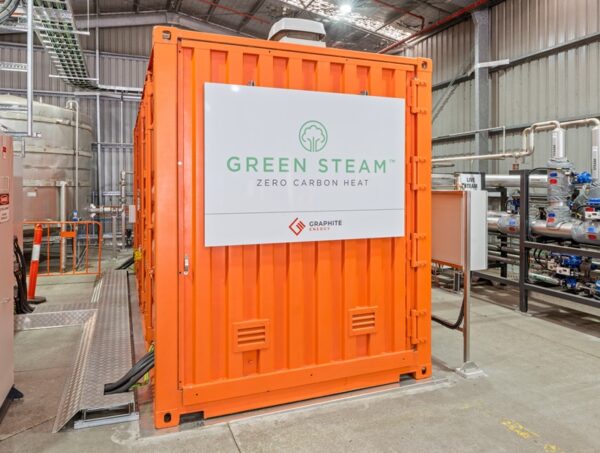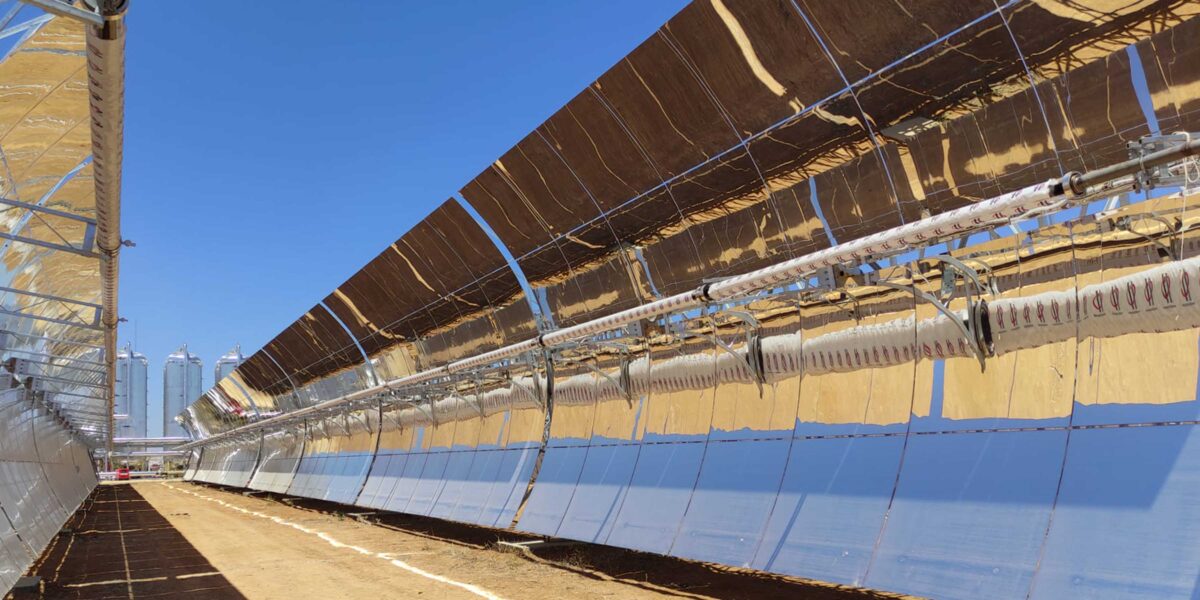The Australian Renewable Energy Agency (ARENA) has announced $17.2 million (USD 11.29 million) in funding to support the installation of an 18 MW parabolic trough concentrated solar thermal (CST) plant at food manufacturer Mars Incorporated’s pet food factory in the Victorian city of Wodonga.
Mars plans to install an 18 MW CST plant that will use mirrors to concentrate sunlight onto a targeted location at high temperatures. The plant will utilise a parabolic trough solar collector system, with between 60 to 150 MWh of storage, delivering up to 10 hours of thermal storage. The parabolic trough collectors will convert the sun’s energy into heat at approximately 240°C, which will be stored and used to generate steam, providing round-the-clock industrial process heat at the Wodonga facility.
The $39.3 million project – which ARENA said is set to be the first deployment of parabolic trough CST technology in Australia and the sixth largest deployment of solar heat for an industrial process globally – is expected to halve the use of gas at the Wodonga site, leading to an annual carbon reduction of up to 4,000 tons.
ARENA Chief Executive Darren Miller said the project could provide a blueprint for industrial facilities looking to generate renewable energy from heat on site, where land availability constrains the use of PV.
“With industry currently accounting for around 44% of Australia’s total emissions, we need to look at all renewable energy technology options to generate enough energy to power industry and solve this challenging piece of the puzzle,” he said.
“Concentrated solar power has been used for electricity and heat generation for decades overseas, so it’s great to see the renewed interest in it from Mars Petcare in what could be a growing trend for Australian industry in its journey to net zero.”
Construction of the CST plant is due to begin next month with the facility expected to be in operation by 2026.
Mars Petcare Australia General Manager Craig Sargeant said CST shapes as a viable option for businesses seeking reliable, renewable heat solutions to decarbonise industrial processes.
“CST offers a powerful solution by capturing and storing solar energy, in the form of high temperature heat, for use at any time, making it an ideal fit for our steam-based manufacturing needs,” he said.

Image: Graphite Energy
Sargeant said the CST project will complement an existing electric thermal energy storage system that has been in operation at the site for more than 12 months. The 1 MW / 5 MWh storage system, manufactured in by Graphite Energy, uses low-cost grid-connected renewable electricity during off-peak times to generate and store thermal energy for later use.
Mars is aiming to transition the Wodonga facility to 100% renewable energy in two years.
This content is protected by copyright and may not be reused. If you want to cooperate with us and would like to reuse some of our content, please contact: editors@pv-magazine.com.









By submitting this form you agree to pv magazine using your data for the purposes of publishing your comment.
Your personal data will only be disclosed or otherwise transmitted to third parties for the purposes of spam filtering or if this is necessary for technical maintenance of the website. Any other transfer to third parties will not take place unless this is justified on the basis of applicable data protection regulations or if pv magazine is legally obliged to do so.
You may revoke this consent at any time with effect for the future, in which case your personal data will be deleted immediately. Otherwise, your data will be deleted if pv magazine has processed your request or the purpose of data storage is fulfilled.
Further information on data privacy can be found in our Data Protection Policy.